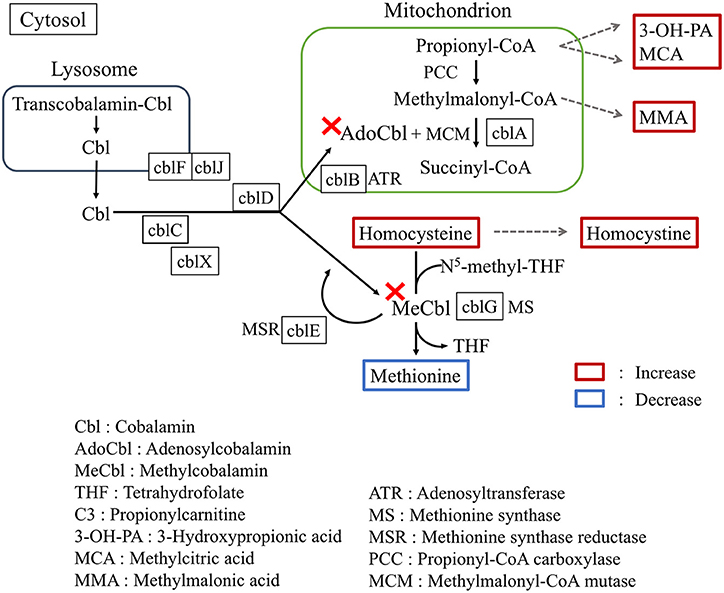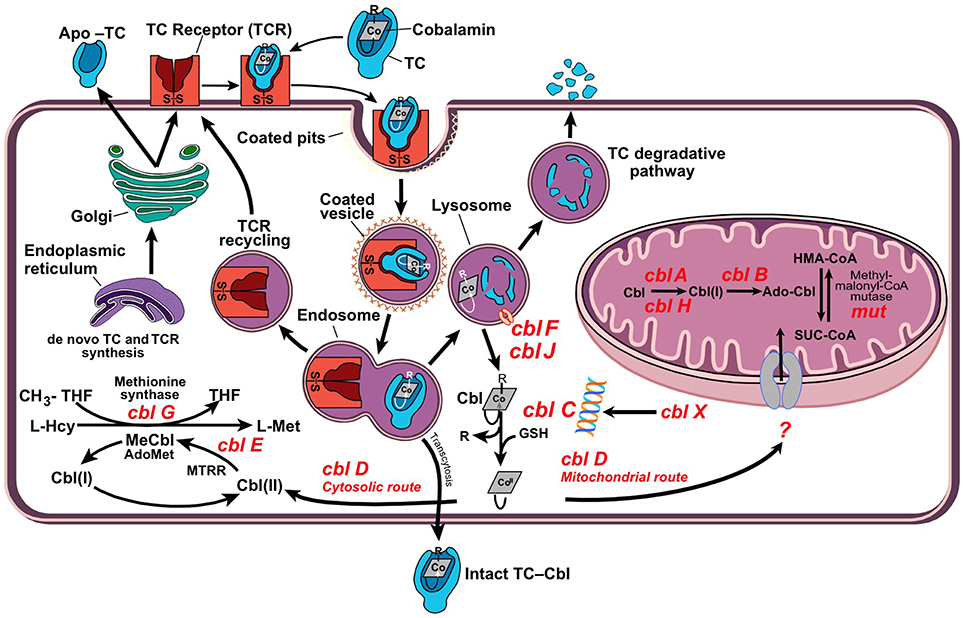Pernicious anemia, often abbreviated as PA, is a condition that arises when the body cannot properly absorb vitamin B12. This essential nutrient plays a crucial role in red blood cell production, neurological function, and DNA synthesis. Without adequate levels of this vitamin, individuals may experience a range of symptoms that can significantly impact their quality of life. In this article, we will explore the causes, symptoms, and care options for pernicious anemia to provide a comprehensive understanding of this medical condition.

What is Pernicious Anemia?
Pernicious anemia is a type of megaloblastic anemia, which refers to the abnormal development of red blood cells due to impaired DNA synthesis. The condition occurs when the body lacks intrinsic factor, a protein produced by the stomach lining that is necessary for the absorption of vitamin B12 from food. Without intrinsic factor, the body cannot effectively utilize vitamin B12, leading to its deficiency and subsequent health complications.
The Role of Vitamin B12
Vitamin B12 is a water-soluble vitamin found primarily in animal-based foods such as meat, fish, eggs, and dairy products. It is vital for several physiological processes, including:
- Red blood cell formation
- Neurological function
- DNA synthesis
- Energy production
A deficiency in this vitamin disrupts these processes, leading to the symptoms associated with pernicious anemia.
Causes of Pernicious Anemia
Understanding the root causes of pernicious anemia is essential for both prevention and treatment. Several factors contribute to the development of this condition:
Autoimmune Disorders
In many cases, pernicious anemia is caused by an autoimmune disorder. The immune system mistakenly attacks the cells in the stomach lining that produce intrinsic factor. When these cells are damaged or destroyed, the body cannot produce enough intrinsic factor to absorb vitamin B12 from food.
Gastrointestinal Conditions
Certain gastrointestinal disorders can interfere with the absorption of vitamin B12. These include:
- Gastritis: Chronic inflammation of the stomach lining can impair intrinsic factor production.
- Celiac disease: This autoimmune condition damages the small intestine, affecting nutrient absorption.
- Crohn’s disease: A chronic inflammatory bowel disease that can disrupt the digestive tract’s ability to absorb nutrients.
Surgical Procedures
Surgical removal of part or all of the stomach or the terminal ileum (the section of the small intestine where vitamin B12 is absorbed) can lead to pernicious anemia. Such procedures are often performed to treat conditions like cancer, obesity, or severe ulcers.
Dietary Insufficiency
While less common, a strict vegetarian or vegan diet can result in vitamin B12 deficiency if alternative sources of the vitamin, such as fortified foods or supplements, are not consumed. Animal-based foods are the primary natural source of vitamin B12.
Symptoms of Pernicious Anemia
The symptoms of pernicious anemia can vary widely and may develop gradually over time. Some individuals may experience mild symptoms, while others may face more severe complications. Common signs and symptoms include:
Fatigue and Weakness
One of the hallmark symptoms of pernicious anemia is persistent fatigue and weakness. This occurs because the body cannot produce enough healthy red blood cells to carry oxygen throughout the body.
Pale or Jaundiced Skin
A lack of red blood cells can cause the skin to appear pale. Additionally, jaundice, characterized by a yellowish tint to the skin and eyes, may occur due to the breakdown of defective red blood cells.
Shortness of Breath
Individuals with pernicious anemia often experience shortness of breath, especially during physical activity. This symptom arises from reduced oxygen-carrying capacity in the blood.
Numbness or Tingling
Vitamin B12 is essential for maintaining the health of the nervous system. A deficiency can lead to nerve damage, causing numbness or tingling sensations in the hands and feet.
Cognitive Impairment
Memory problems, difficulty concentrating, and confusion are common neurological symptoms of pernicious anemia. In severe cases, untreated vitamin B12 deficiency can lead to dementia-like symptoms.
Mood Changes
Depression, irritability, and mood swings may occur as a result of vitamin B12 deficiency. These symptoms are often linked to the impact of the deficiency on brain function.
Diagnosis of Pernicious Anemia
Diagnosing pernicious anemia involves a combination of clinical evaluation, laboratory tests, and patient history. Healthcare providers typically follow these steps:
Blood Tests
A complete blood count test is often the first step in diagnosing pernicious anemia. This test measures the number and size of red blood cells. In individuals with pernicious anemia, red blood cells are larger than normal and fewer in number.
Vitamin B12 Levels
A blood test to measure vitamin B12 levels can confirm a deficiency. Low levels of the vitamin suggest the possibility of pernicious anemia.
Intrinsic Factor Antibodies
Testing for antibodies against intrinsic factor can help identify autoimmune causes of pernicious anemia. If these antibodies are present, it indicates that the immune system is attacking the stomach cells responsible for producing intrinsic factor.
Gastric Biopsy
In some cases, a biopsy of the stomach lining may be performed to assess the extent of damage caused by autoimmune gastritis or other conditions affecting intrinsic factor production.
Treatment Options for Pernicious Anemia
Treatment for pernicious anemia focuses on addressing the underlying vitamin B12 deficiency and managing symptoms. The following approaches are commonly used:
Vitamin B12 Injections
Vitamin B12 injections are the most effective treatment for individuals with pernicious anemia. These injections bypass the digestive system, ensuring that the body receives the necessary amount of the vitamin. Initially, injections may be administered frequently, followed by maintenance doses at regular intervals.
Oral Supplements
For individuals who can absorb some vitamin B12 through the digestive tract, high-dose oral supplements may be prescribed. While not as effective as injections, they can help maintain adequate levels of the vitamin in certain cases.
Dietary Adjustments
Incorporating vitamin B12-rich foods into the diet is essential for preventing further deficiency. Foods such as meat, fish, eggs, and dairy products should be consumed regularly. For those following plant-based diets, fortified cereals, plant-based milks, and nutritional yeast can serve as alternative sources.
Monitoring and Follow-Up
Regular monitoring of vitamin B12 levels is crucial to ensure that treatment is effective. Healthcare providers may adjust the frequency of injections or supplement dosages based on the individual’s response to treatment.
Lifestyle and Self-Care Strategies
In addition to medical treatment, adopting certain lifestyle changes can support overall health and well-being for individuals with pernicious anemia:
Educate Yourself
Understanding the condition and its management is empowering. Individuals should work closely with healthcare providers to stay informed about their treatment options and progress.
Adopt a Balanced Diet
Even with treatment, maintaining a balanced diet rich in essential nutrients can enhance recovery and prevent future deficiencies. Consulting a nutritionist may be beneficial for personalized dietary guidance.
Manage Stress
Chronic stress can exacerbate symptoms of pernicious anemia. Practicing relaxation techniques such as meditation, yoga, or deep breathing exercises can help reduce stress levels.
Stay Active
Engaging in regular physical activity can improve energy levels and overall health. However, individuals should consult their healthcare provider before starting any new exercise regimen.
Complications of Untreated Pernicious Anemia
If left untreated, pernicious anemia can lead to serious complications, including:
- Severe neurological damage
- Heart problems due to anemia
- Pregnancy complications, such as neural tube defects in the baby
- Increased risk of infections
Preventing Complications
Early diagnosis and consistent treatment are key to preventing complications. Regular check-ups and adherence to prescribed treatment plans can significantly reduce the risk of long-term health issues.
Conclusion
Pernicious anemia is a manageable condition with proper medical care and lifestyle adjustments. By understanding its causes, recognizing its symptoms, and following recommended treatment protocols, individuals can lead healthy and fulfilling lives despite this diagnosis.





